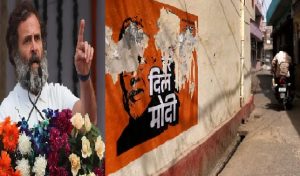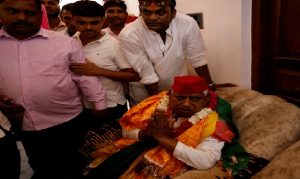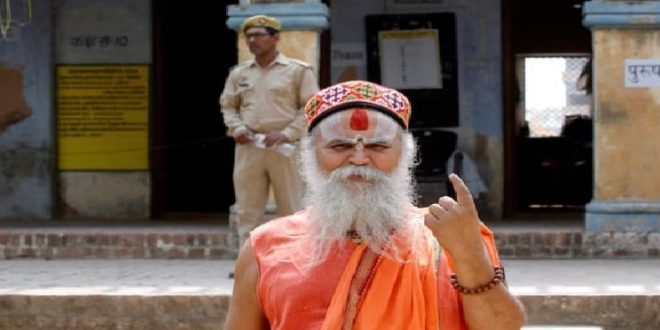16-06-2024
Bureau Report + Agencies
NEW DELHI/ AYODHYA/ VARANASI: A seminal moment in Prime Minister Narendra Modi’s unsuccessful campaign to retain his parliamentary majority occurred days before India’s marathon election began in April.
Speaking in the constituency that includes the Hindu temple town of Ayodhya, lawmaker Lallu Singh said that his and Modi’s Bharatiya Janata Party (BJP) was seeking a supermajority in parliament’s lower chamber to make material changes to the constitution.
 Opposition parties latched onto Singh’s remark to assert, without evidence, that the BJP would amend modern India’s founding document to strip Hindus at the bottom of the caste hierarchy of access to affirmative action policies.
Opposition parties latched onto Singh’s remark to assert, without evidence, that the BJP would amend modern India’s founding document to strip Hindus at the bottom of the caste hierarchy of access to affirmative action policies.
The attack line hit a nerve – splitting the Hindu vote and ending the BJP’s decade-long dominance in the country’s most populous state.
Opinion polls had pointed to a landslide in Ayodhya’s home state of Uttar Pradesh and nationally but when results came through on June 4, the BJP had lost 29 seats in the state nearly half of all the party’s losses nationwide.
“It hit the people like fire,” said Awadhesh Prasad of the opposition Samajwadi Party (SP), whose base comprises Muslim and lower-caste voters in Uttar Pradesh. He successfully wrested the constituency anchored by Ayodhya from Singh, who had held it since 2014.
Despite the BJP’s best efforts to debunk the emerging narrative, the damage was done.
“The prime minister and other leaders tried to explain to the people, but by then their mood was set,” said Dileep Patel, a state BJP official in Varanasi. Singh declined to comment.
Media interviewed 29 party leaders and workers from the BJP and rival parties, four analysts and 50 voters for this story. They described how lower caste concerns about affirmative action, along with a shortage of jobs, and complacent BJP activists combined to tip the scales in Uttar Pradesh, which sends the most lawmakers to parliament.
 After a decade of electoral near-invincibility that combined economic success with a narrative of Hindu supremacy, Modi’s party was reduced to 240 seats nationwide. He was able to form a third government only with the help of allies, some of whom have a reputation for political fickleness.
After a decade of electoral near-invincibility that combined economic success with a narrative of Hindu supremacy, Modi’s party was reduced to 240 seats nationwide. He was able to form a third government only with the help of allies, some of whom have a reputation for political fickleness.
It was a reminder that BJP cannot take Hindu votes for granted.
Ayodhya was supposed to be the safest of seats.
In January, Modi inaugurated a grand temple there to the deity Lord Ram in a ceremony that sparked national euphoria. It also fulfilled a decades’ long pledge used by the BJP to rise from India’s political margins into a major force.
Singh’s speech made no mention of taking benefits from lower castes and Modi’s aides have frequently downplayed concerns about changes to the constitution, which guarantees school and government job quotas to historically disadvantaged castes and tribal groups, both still among India’s poorest but it quickly spread on social media, fuelling an opposition campaign.
SP Chief Akhilesh Yadav wrote on social media that the BJP wanted to end the quota system and keep underprivileged segments of society “as their slaves.”
At election rallies, Yadav’s ally and the opposition’s main figurehead, Rahul Gandhi of the Congress party, began whipping out a pocket-sized copy of the constitution, warning it was under threat.
 Pressmediaofindia
Pressmediaofindia




